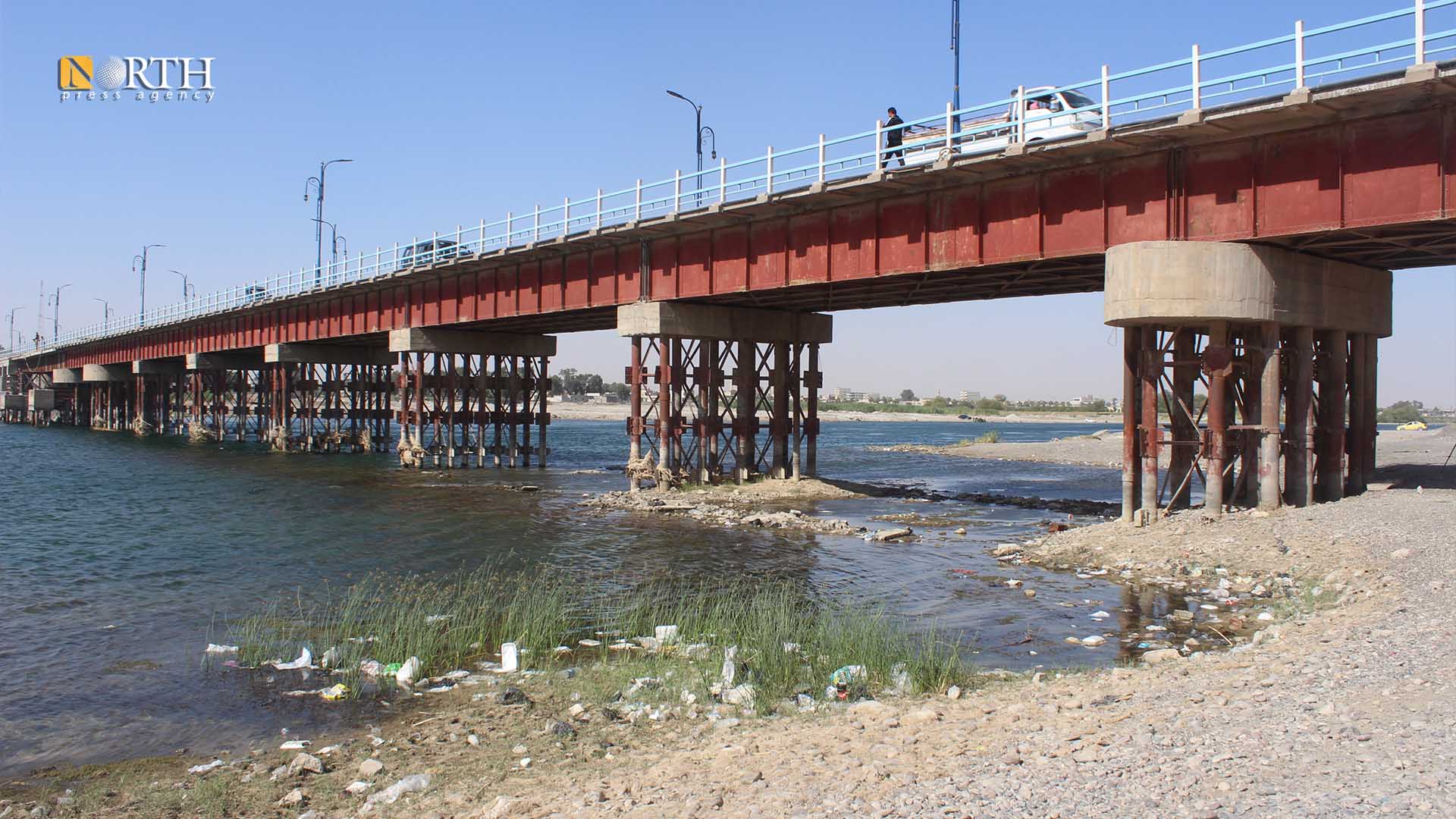Low dam storage threatens summer crops: AANES Dam management
RAQQA, Syria (North Press) – On Tuesday, Muhammad Tarboush, an official in the General Dams Department of the Autonomous Administration of North and East Syria, said that the flow of the Euphrates River has not improved and the low level in the river’s reservoirs still threatens summer crops.
Tarboush added to North Press that the level of the Euphrates River Lake has decreased by about six vertical meters.
Since last February, Turkey has continued to reduce the flow of the Euphrates River towards Syrian territory to about 200 cubic meters per second, amid regional and international warnings of the negative effects on the Syrian and Iraqi regions due to the lack of Euphrates water supply to the two countries.
Turkey’s seizure of the Euphrates water has caused many living and life problems, most notably the lack of drinking water and electricity and the repercussions on irrigated agriculture and the environment.
During the past days, cases of children drinking contaminated water increased in cities and towns that depend on the Euphrates River for drinking water in light of the rising temperatures, according to doctors in Raqqa and Deir ez-Zor.
The lack of water also threatens to damage summer crops, after farmers in the region suffered losses in winter crops due to the lack of rain during last winter.
Ismael Hamid (40), a farmer from southern Raqqa countryside, said that most of the water pumps from the river that lie directly on the river are either out of the stream or on its edges and will soon be out if the water from the river remains so.
He added that farmers may have to extend the pumps to the depth of the river in anticipation of a further decline, or contract with drillers to open the water flow towards the pumps.
The agricultural lands in Raqqa need 90 cubic meters per second for irrigation, “and if this amount is pulled from the Euphrates Lake storage, there will not remain enough water supply to generate electricity, and therefore irrigation stations will also stop,” according to the head of the Irrigation Corporation Sheikh Nabi Khalil in a previous statement to North Press.
Khalil warned of “catastrophic effects” on agriculture in Raqqa, as they will have to stop the pumps if Turkey continues to hold Syria’s share of the Euphrates water.

